Bibby Stockholm barge: Why is asylum housing plan so controversial?
- Published
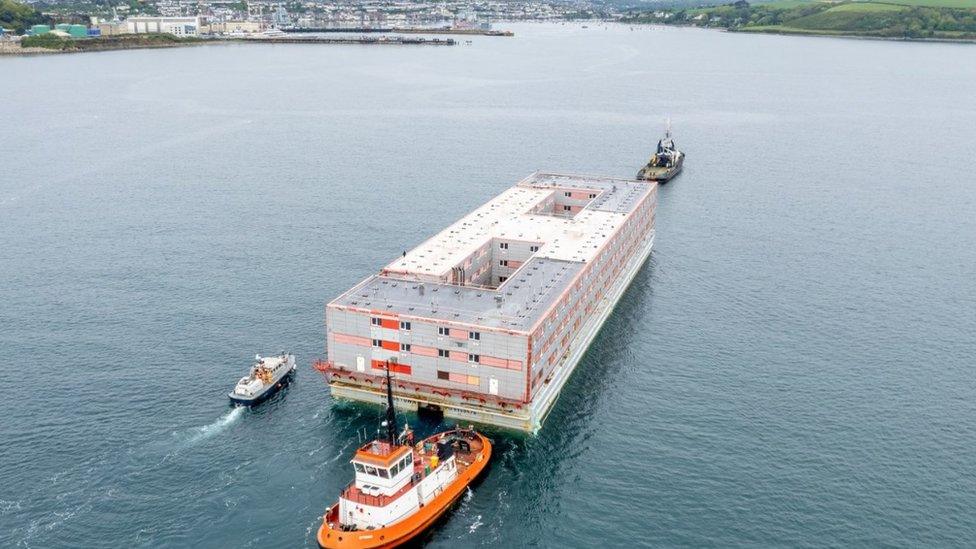
The 222-bedroom, three-storey vessel will house about 500 migrants
The Bibby Stockholm accommodation barge is heading to Portland in Dorset where it will house up to 500 asylum seekers - against the wishes of many local people. It's the first time a barge has been used in this way in the UK. BBC News looks at some of the key questions it has raised.
Why is the government using the barge?
Bibby Stockholm is the first vessel secured under Home Secretary Suella Braverman's plans to reduce the cost of asylum accommodation by housing asylum seekers on barges. The government says it is currently spending £6m per day housing more than 50,000 migrants in hotels.
"We think it is better to open specific sites designed to house immigrants that come in, done in a more planned way," Prime Minister Rishi Sunak's spokesman said. "That's what we are seeking to do with the Bibby Stockholm and that's what we're seeking to do in other parts of the country - opening up sites to take the pressure off local areas and to reduce the cost.
Why is it controversial?
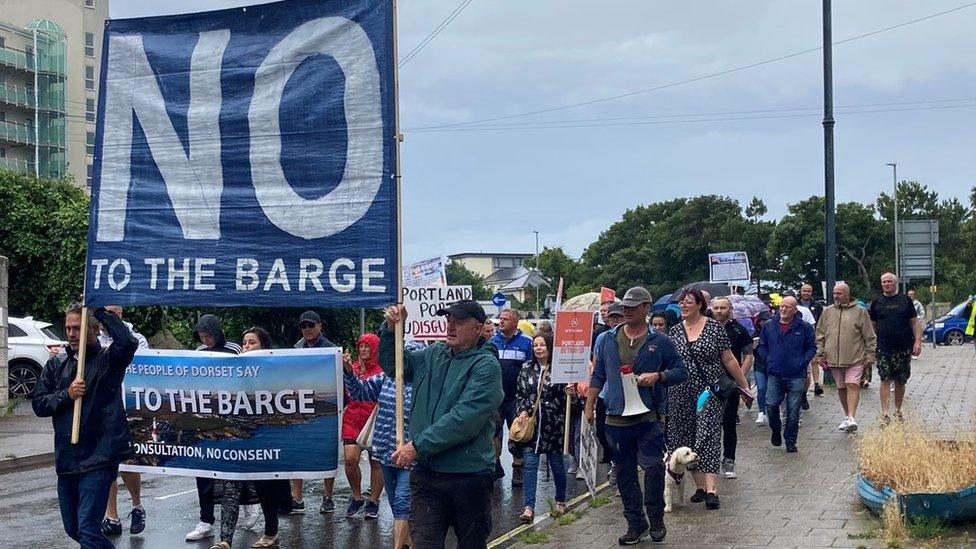
Campaigners opposing the barge have held marches to Portland Port
There has been considerable local opposition to the Bibby Stockholm, amid fears about the impact an eventual 500 asylum seekers will have on local services in Portland, like healthcare and also about the conditions in which residents will live on board.
More than 50 national organisations and campaigners, including the Refugee Council, Asylum Matters and Refugee Action, called the government plan "cruel and inhumane". They said the vessel was "entirely inappropriate" and would house traumatised migrants in "detention-like conditions".
But Dorset Police say they expect the barge to have no impact on local crime levels, and Dorset Council - while saying it had no choice but to accept the barge - says it can protect services thanks to an extra £1.7m government grant. The Home Office says it will support the migrants' welfare by providing basic healthcare, organised activities and recreation.
Other places refused, why did Portland say yes?
Four ports have reportedly opposed the idea of berthing a migrant barge: London's Royal Docks, Peel Ports at Birkenhead, PD Ports on Teesside and Port of Tyne near Newcastle.
However, Portland Port welcomed the government's approach earlier this year.
The port, which is privately-owned, previously hosted the prison ship HMP Weare from 1997 to 2006. It said it was happy to play its part in the national effort to house those fleeing persecution and war.
Conservative-controlled Dorset Council, which considered legal action against the scheme, remains staunchly opposed but said it was working positively with the Home Office. At a meeting last week, councillor Laura Beddow said Portland Port was the wrong place to site the barge but added that the council had been told legal action was unlikely to succeed.
What will life be like on the barge?
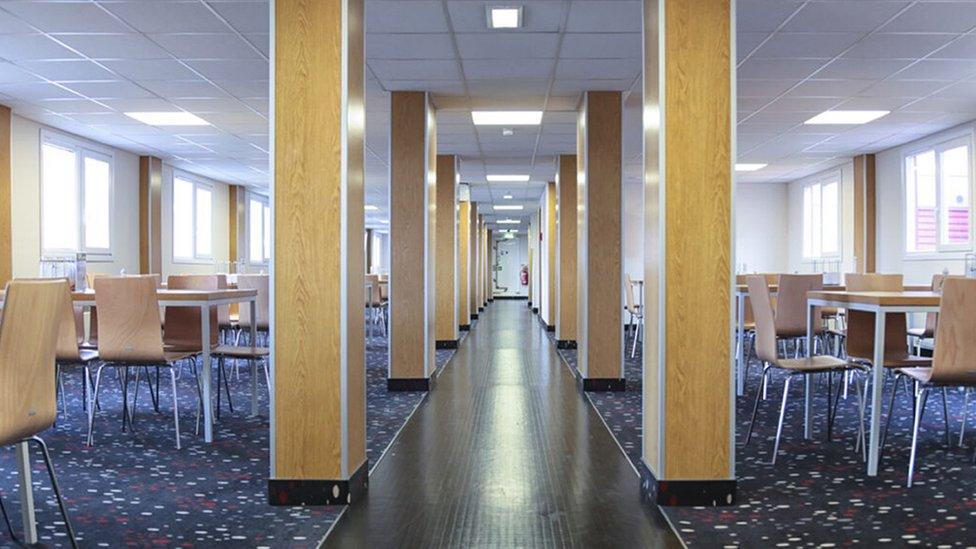
The Bibby Stockholm has reportedly already been used to house homeless people and asylum seekers in Germany and the Netherlands
Previous users, including offshore energy workers, have enjoyed single occupancy in the Bibby Stockholm's rooms. However, reports suggest the 222 single-bed cabins have been refitted to become into twin rooms. Other rooms have become 4- or 6-bed dormitories.
The barge owner - Liverpool-based Bibby Marine - says the vessel can accommodate 506 people. Catering facilities, quiet rooms, faith rooms, a TV lounge and space for games have survived the refit and a computer room has been created to enable migrants to access the internet.
What will they do in the local area?
There is no requirement for migrants to stay on board the Bibby Stockholm because they are not officially detained. When they disembark, they will step into a secure compound on the portside next to the vessel and can catch specially-arranged buses to leave the port - or simply walk into the South Coast town.
Free buses - initially hourly - will take migrants through port security to organised activities in Weymouth and Portland. Dorset Council said these might include guided walks, work in community gardens, voluntary work and sports including football and handball.
The migrants will be "strongly encouraged" to return to the barge by 23:00 each night. They will receive an allowance of just £9.10 per week, reduced from the usual £45 because the vessel has catering on board.
When will asylum seekers be on board?
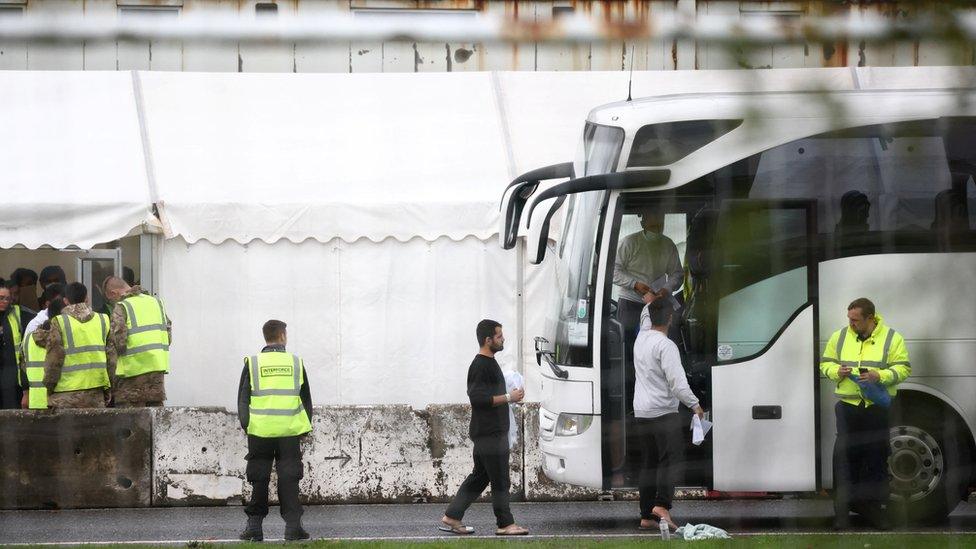
Portland Port says that on arrival the barge will be connected to the port's fresh water and mains sewerage network as part of preparations for the arrival of the first group of asylum seekers "in the coming weeks".
Connecting the water and sewerage services will take a couple of days and after that, the vessel's staff will spend a week on induction and training, according to Dorset Council.
Migrants will arrives in stages, with just 50 people expected initially, the authority said. The Home Office said the vessel's first inhabitants would arrive "later this month".
Will the barge save taxpayers' money?
That is disputed. The Home Office says its plans for "alternative accommodation" - which also include former military bases - is clearly cheaper than the £6m daily cost of putting 51,000 asylum seekers in hotels.
However the full costs of the barge have not been disclosed.
The refugee campaign group Reclaim The Sea has claimed the Bibby Stockholm will cost more than hotels, external. It suggested initial savings would be less than £10 per day per asylum seeker, and said even these were likely to be wiped out by extra costs such as dry dock delays and barge repairs.
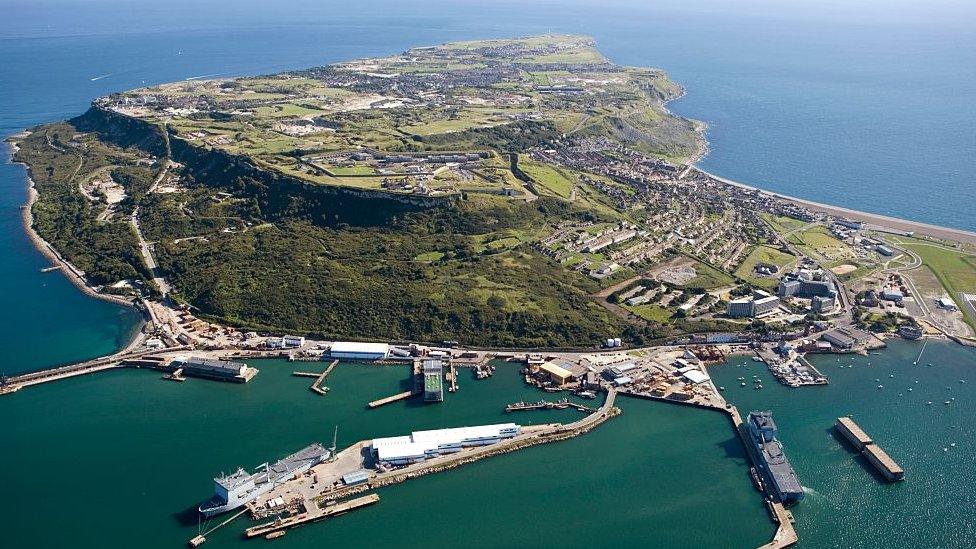
What is the Isle of Portland like?
The rocky peninsula measures 5 miles (8km) from the famous Portland Bill lighthouse to the National Sailing Academy. It is linked to the mainland by a causeway - Weymouth's beach and town centre are 4 miles (6km) away. To the west, Chesil Beach - an iconic raised shingle strip - divides coastal lagoons from the sea.
Portland's famous white stone quarries gave rise to landmarks including St Paul's Cathedral in London and the United Nations headquarters in New York.
The population is currently just under 14,000. The harbour was used as a Royal Navy base up until 1995, and the Royal Naval Air Station closed in 1999.
There are two prisons on Portland. HMP The Verne and a Young Offenders' Institution (HMYOI) on the Grove clifftop. The UK's only prison ship, HMP The Weare, external, was berthed in the harbour between 1997 and 2005.
The harbour was used for sailing events during the 2012 Olympic Games. Despite promises of an economic boost following the games, a 2022 report by South Dorset Research Group concluded that Portland and Weymouth were stuck in a vicious circle of "poor job prospects and low earnings".
One quirky fact: visitors are discouraged from mentioning "rabbits", external. A local superstition forbids any mention of the burrowing creatures for fear of triggering quarry landslips.

Follow BBC South on Facebook, external, Twitter, external, or Instagram, external. Send your story ideas to south.newsonline@bbc.co.uk, external.
Related topics
- Published8 July 2023
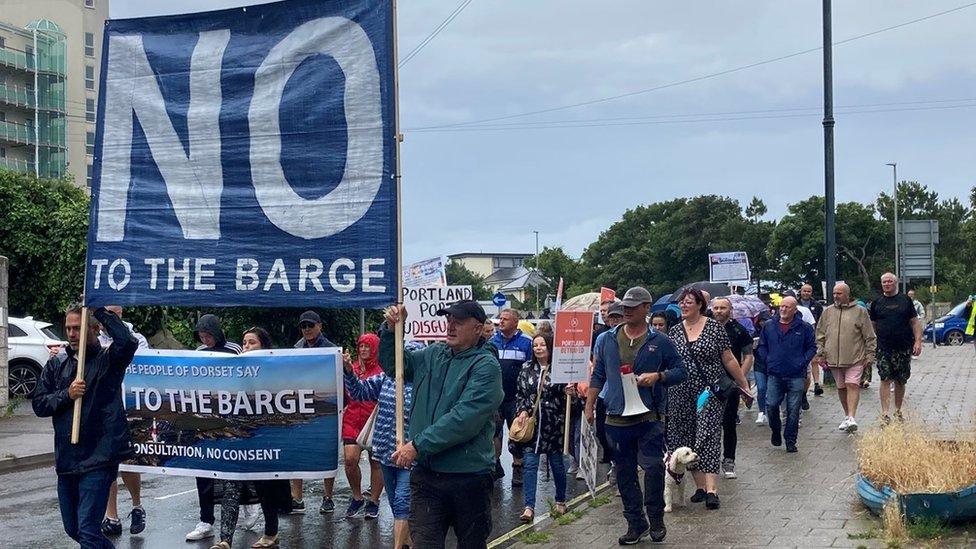
- Published5 June 2023

- Published4 July 2023
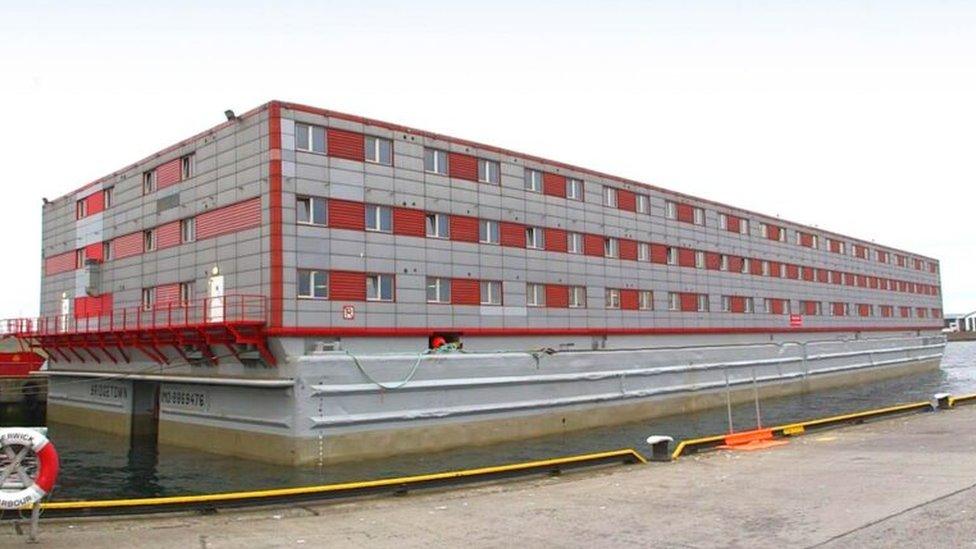
- Published3 May 2023
